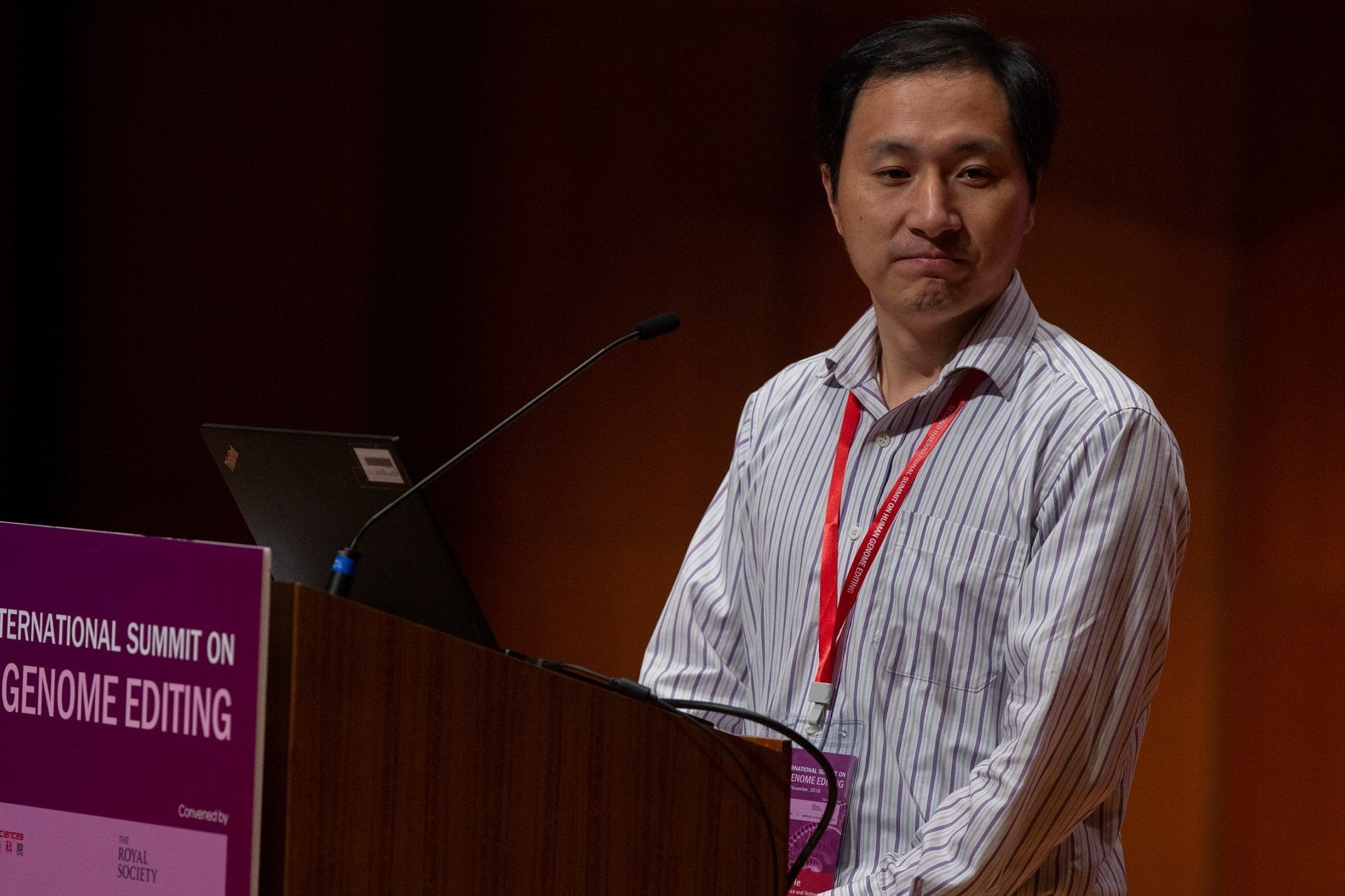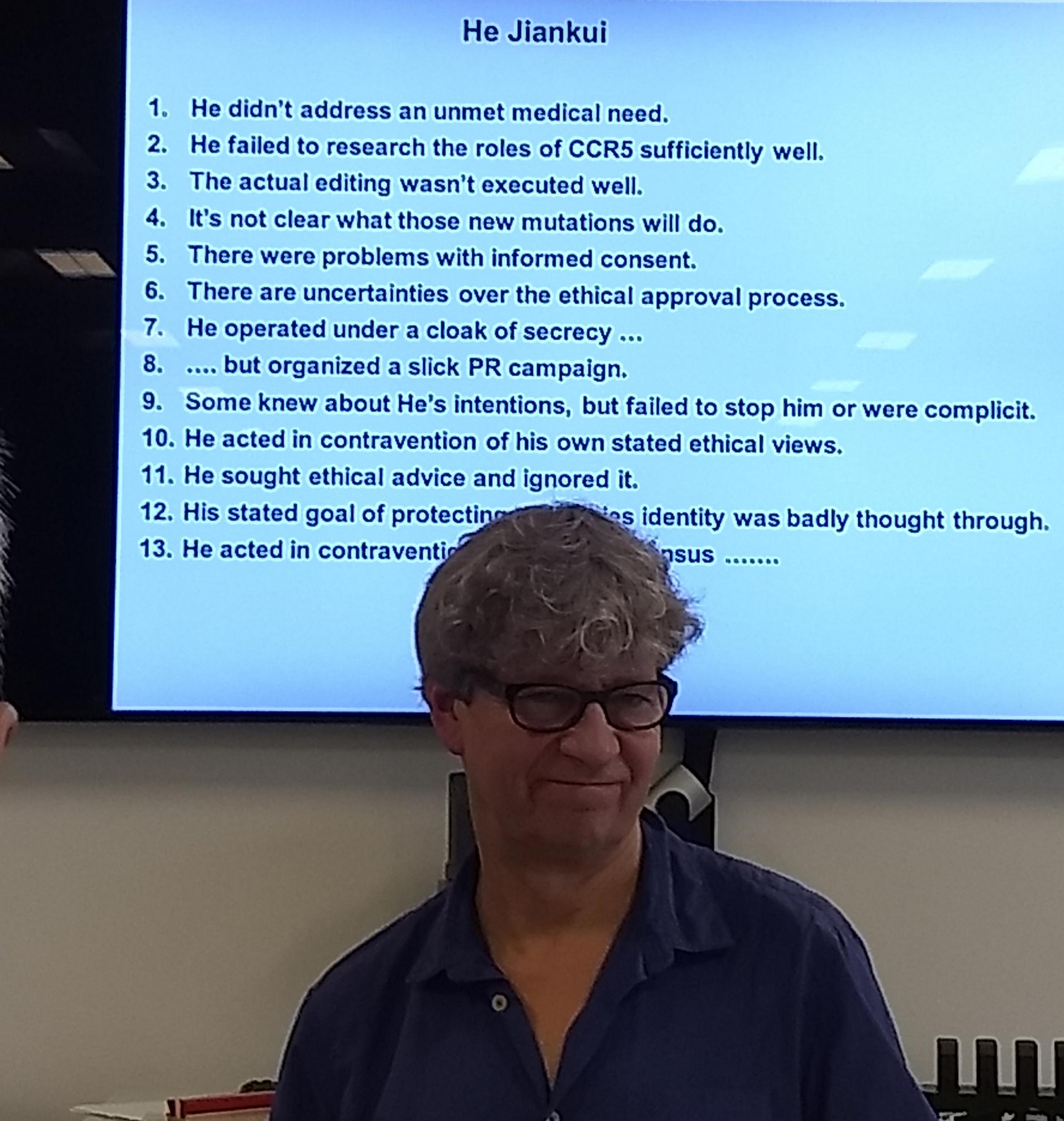‘I’m pretty sure he’s done it’: UK's pre-eminent expert says he believes Chinese professor has created gene-edited babies
‘You have a physicist who doesn’t know biology, who wants to do the next big thing ... And he’s working in an environment where pretty much anything goes,’ says professor Robin Lovell-Badge of disgraced scientist He Jiankui
Your support helps us to tell the story
From reproductive rights to climate change to Big Tech, The Independent is on the ground when the story is developing. Whether it's investigating the financials of Elon Musk's pro-Trump PAC or producing our latest documentary, 'The A Word', which shines a light on the American women fighting for reproductive rights, we know how important it is to parse out the facts from the messaging.
At such a critical moment in US history, we need reporters on the ground. Your donation allows us to keep sending journalists to speak to both sides of the story.
The Independent is trusted by Americans across the entire political spectrum. And unlike many other quality news outlets, we choose not to lock Americans out of our reporting and analysis with paywalls. We believe quality journalism should be available to everyone, paid for by those who can afford it.
Your support makes all the difference.A leading British researcher says he believes a maverick Chinese scientist who claims to have created the world’s first gene edited babies.
With the disgraced professor He Jiankui apparently under house arrest following a global outcry, the circumstances around his alleged experiments still remain mysterious.
Authorities in China have launched an investigation into the work, which purportedly resulted in at least two twin babies resistant to HIV, but seriously contravened ethical codes.
Professor Robin Lovell-Badge, who organised the meeting at which the news emerged, denounced the “huge ego” and inexperience of Professor He, but said he thought the claims were true.
“I’m pretty sure he’s done it ... I can’t be absolutely certain of course, but it would be astonishing if he hadn’t,” he told reporters at an event in London.
Mr Lovell-Badge, who is based at the Francis Crick Institute in London, said Mr He had conducted his work in secret and ignored research suggesting the edited gene would leave the children vulnerable to diseases like influenza.
The two men had a chance to speak shortly after the story emerged, providing a window into the enigmatic project Mr He had until that moment kept hidden from the scientific community.
The work was conducted in Shenzhen, a scientific hub in the south of China that the British researcher compared to the “wild west” for this kind of research.

According to Mr Lovell-Badge, it could set the stage for more mavericks in China operating outside normal restrictions around human gene editing – and given the backlash, it is unlikely the world will find out about them.
“It seem to be easier to get things done there – there are less hoops to jump through … The further you get from Beijing the more you can get away with,” he said.
Another concern was the lack of basic training in biology undertaken by Mr He, who claimed to have funded the project himself using the millions he made from his business interests.
“You have a physicist who doesn’t know biology, who wants to do the next big thing – huge ego, lots of money – and he’s working in an environment where pretty much anything goes,” said Mr Lovell-Badge.
“It’s not an environment where there has been proper evolution of social systems and controls. This is the wild West in China, really.”
The shocking news was made public not via normal scientific avenues, but via press reports that began circulating before Professor He was set to talk at the International Human Genome Editing Summit in Hong Kong.
The scientist was given the chance to explain his work at the conference after going into hiding due to alleged threats and a furious response from the world’s scientists.
He is currently residing in a university guesthouse under armed supervision while the government conducts its investigation, although it is unclear whether guards are there to protect the professor or prevent him escaping.

One of the most contentious issues was the gene Mr He had decided to edit.
Though he said he was proud to have given HIV resistance to the twins, whose father was HIV-positive, Mr Lovell-Badge and other experts said it was pointless given adequate measures are already available to ensure infected men to not pass the disease onto their children.
However, Mr Lovell-Badge noted that if the experiments had been conducted better, they would have drawn comparisons to IVF pioneer Robert Edwards and may have been met with praise. He said diseases like the blood disorder beta thalassaemia and certain cancers would have been far better targets.
As it stands it is unclear whether Mr He broke any laws, and with Chinese authorities handling the investigation it may be that the full picture never emerges.
It could be that he did not gain adequate approval from the trial’s participants, may not have informed them properly of the risks involved, and may have even paid them to take part.
According to Mr Lovell-Badge it is pointless placing an outright ban on this kind of research, but detailed protocols must be drawn up to ensure something like this does not happen again.
As for Mr He, it appears he is still convinced he did the right thing and was surprised by the backlash.
There is a chance the investigation being undertaken by the Chinese ministries of science and health could see him charged with corruption, and Mr Lovell-Badge said it was likely he would end up in prison.
While the British geneticist said he did not want to act as a judge in this case, he said it was important the rogue scientist was not allowed to repeat these experiments.
“An example needs to be set ... Maybe he needs a psychiatrist, I just don’t know,” he said.

Join our commenting forum
Join thought-provoking conversations, follow other Independent readers and see their replies
Comments